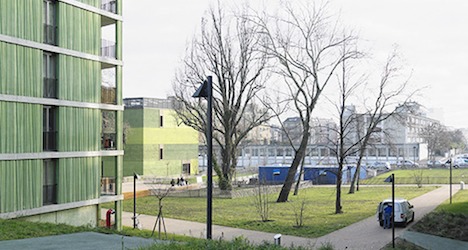That’s the estimate from UBS and real estate consultants Wüest & Partner for average prices of condominiums and villas, according to a report from the Tribune de Genève published on Thursday.
The estimate shows weaker prices across the Lake Geneva region, where an average drop of 2.4 percent was seen, and a slowdown in certain other parts of Switzerland.
Average prices were down by four percent in Lausanne and lower by about 1.5 percent in Winterthur in the canton of Zurich.
The report indicated average prices continued to rise by more than two percent in Saint Gallen and Bern, while showing a slight increase in Zurich.
For tenants in Geneva, where more than 80 percent of the population rents accommodation, the drop in prices is not expected to have any immediate impact on rents.
The price drop is affecting the properties the least demanded — the biggest and the most expensive, the Tribune de Genève indicated.
The housing vacancy rate in Geneva — 0.36 percent at the end of 2013 —is too low to drive down rental rates, Asloca, the tenants’ rights association, told the newspaper.
The news of the softer real estate market in western Switzerland emerged as an annual real estate show got under way in Geneva at the Plainpalais plaza.
The federal government and the Swiss National Bank have taken a series of measures over the past year to cool down Switzerland’s property market, which saw price increases outstripping economic growth with concerns raised about the potential for a speculative bubble to develop.
Lending requirements were stiffened and banks required to hold more capital for mortgages.



 Please whitelist us to continue reading.
Please whitelist us to continue reading.
Member comments